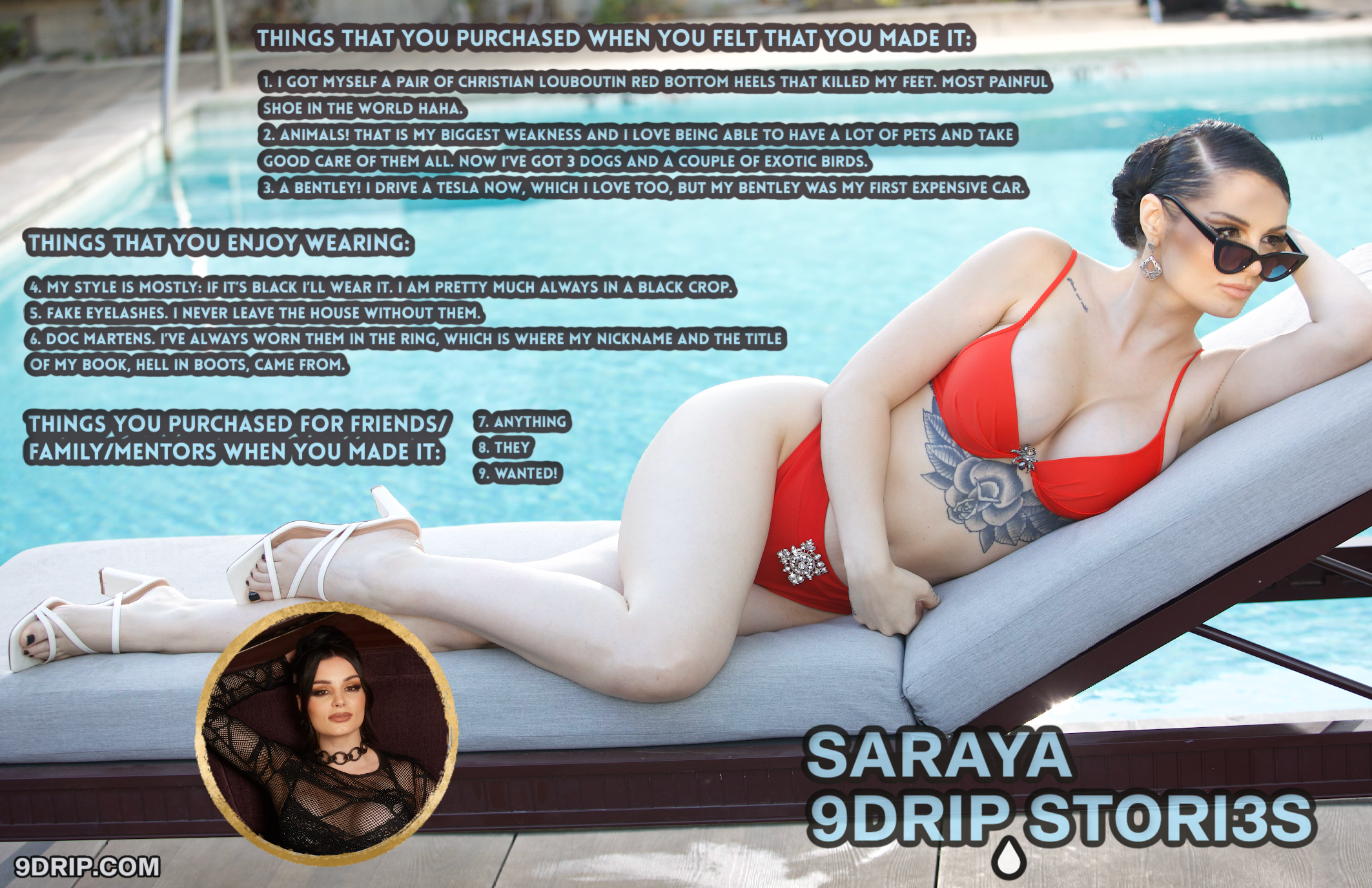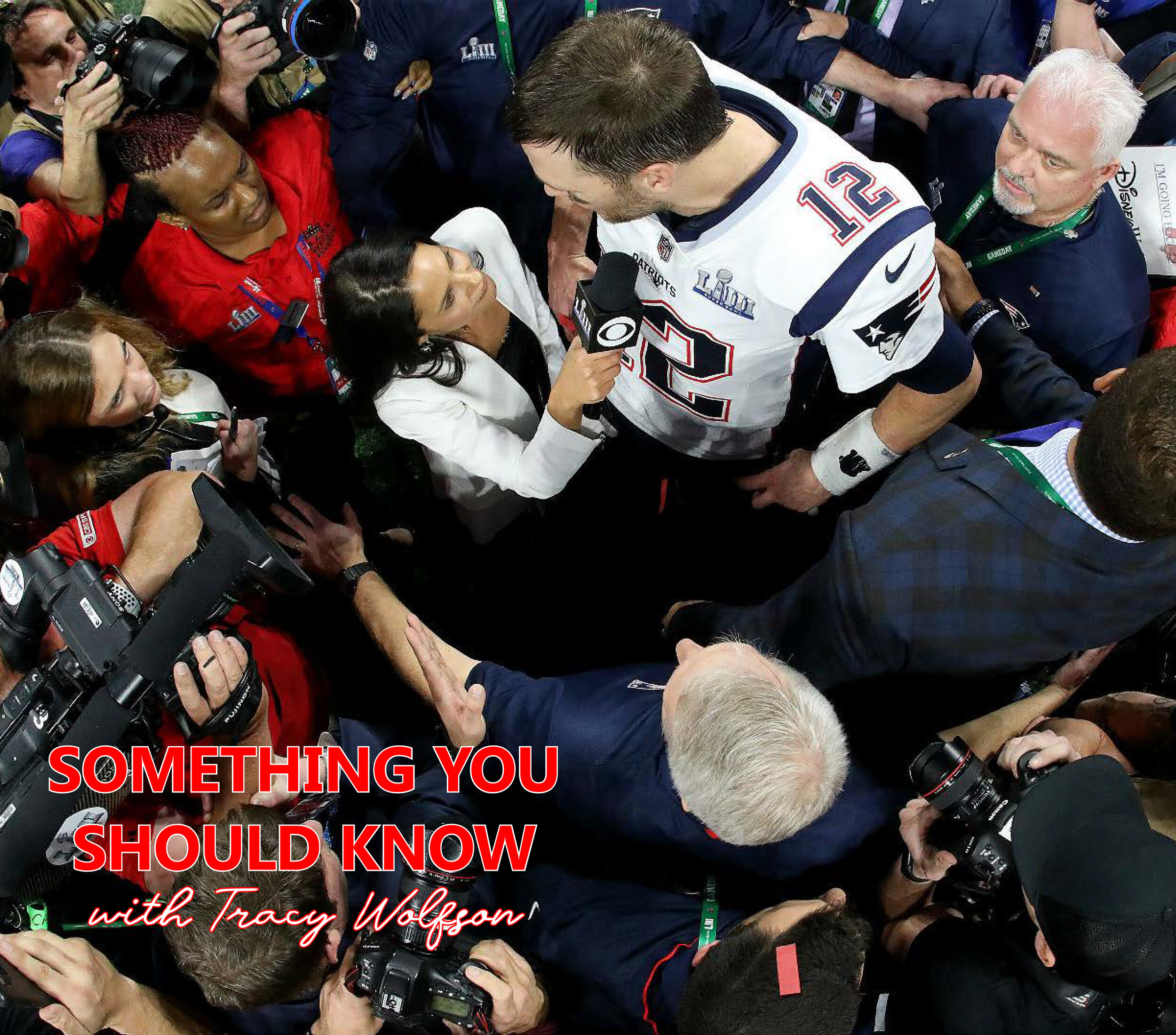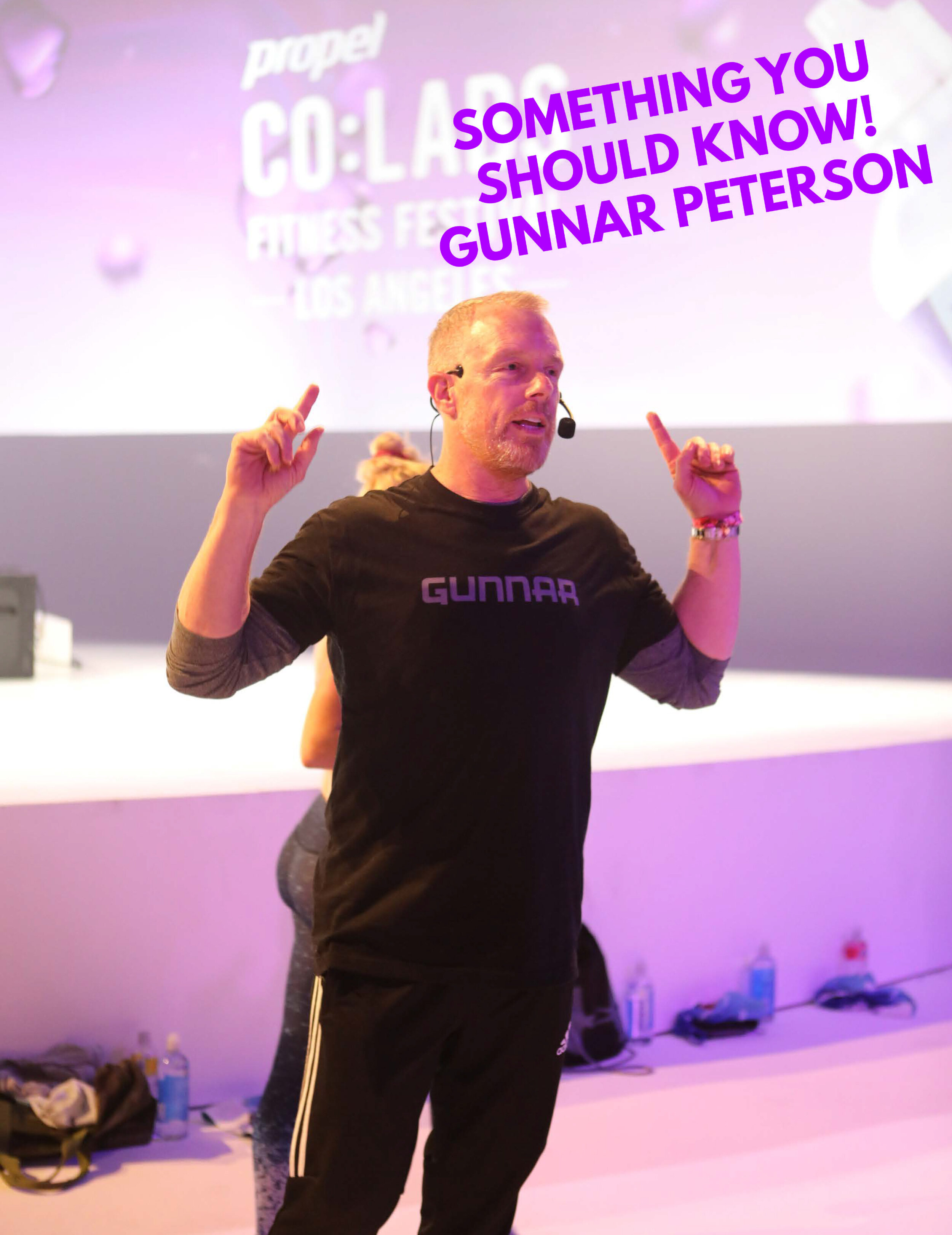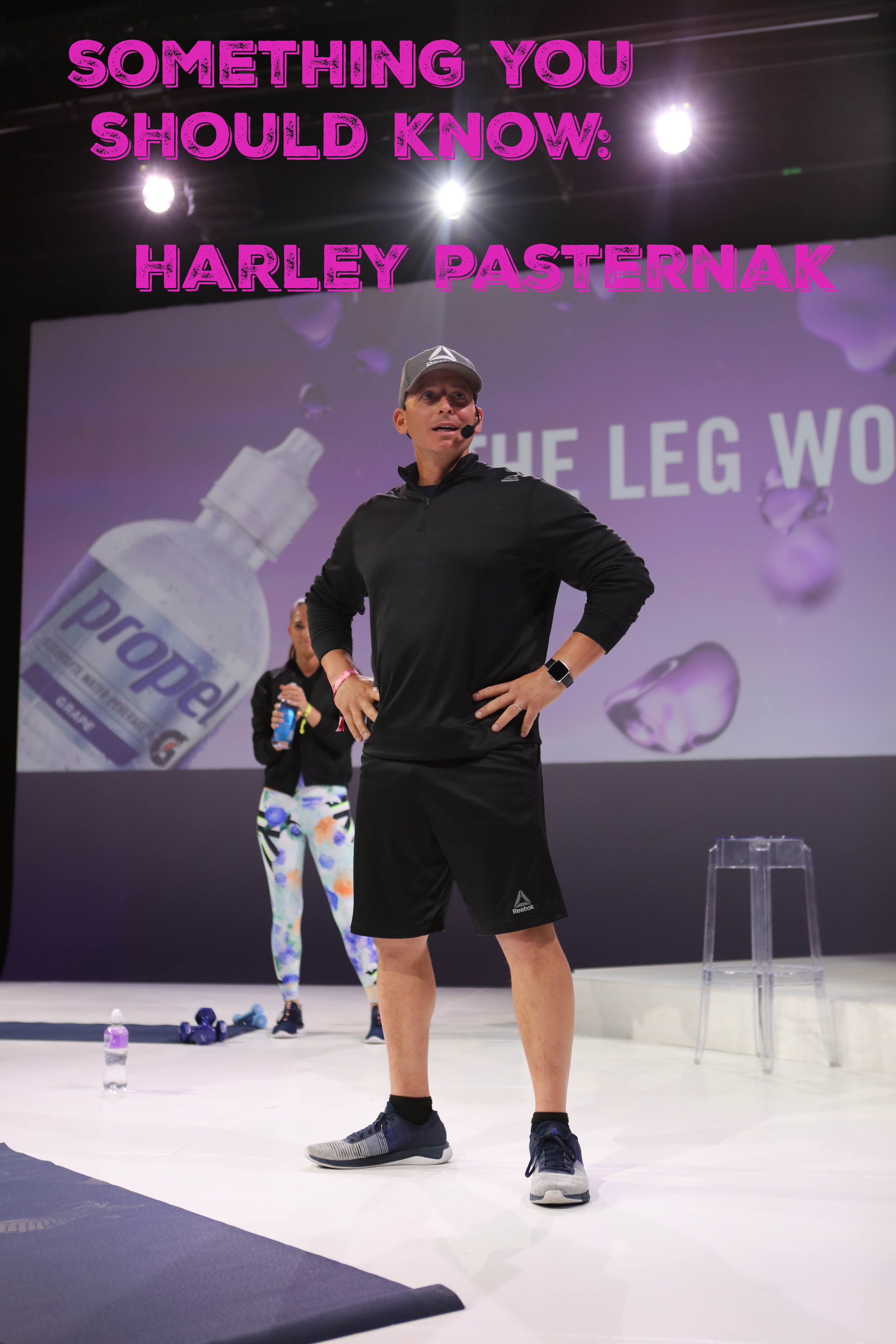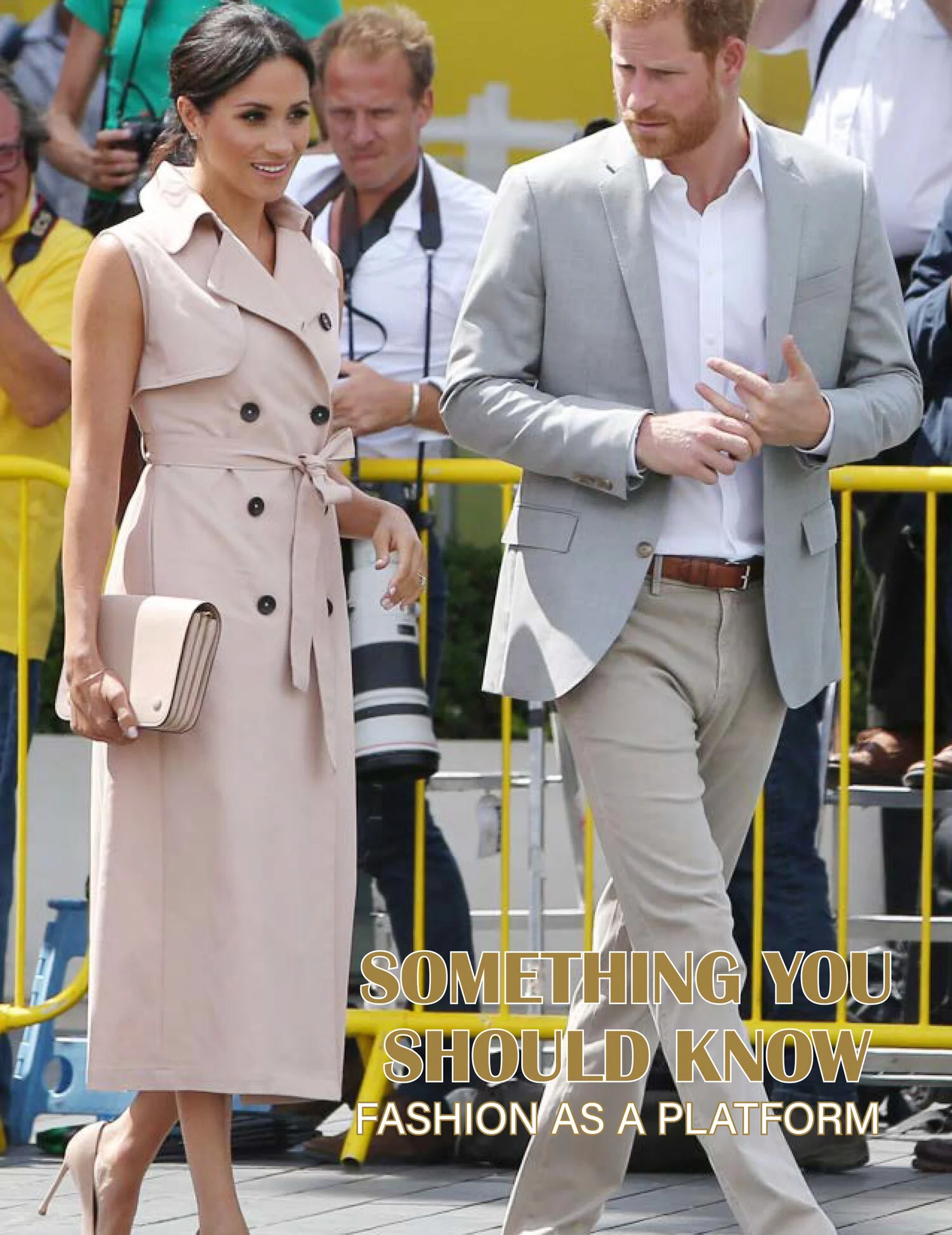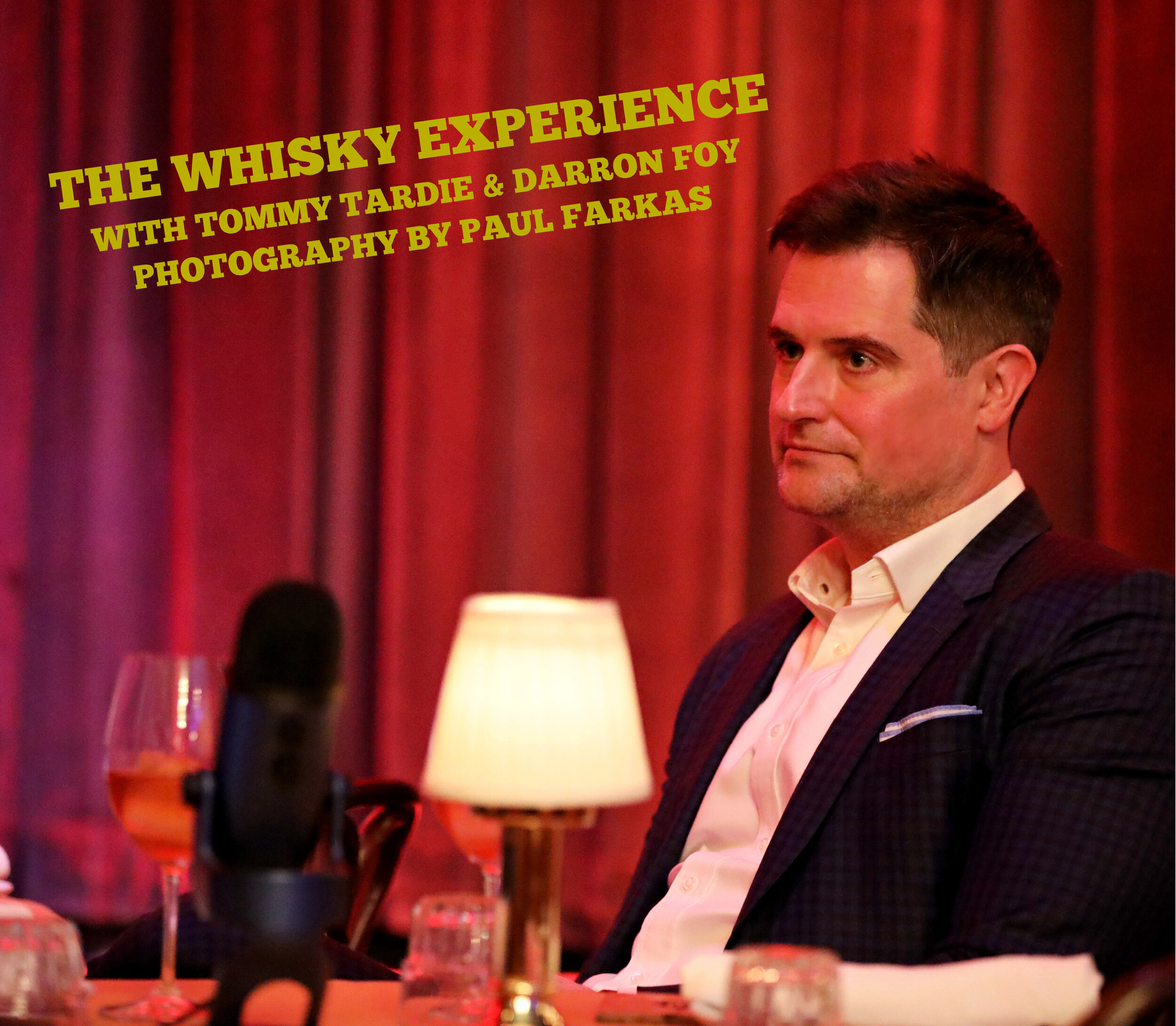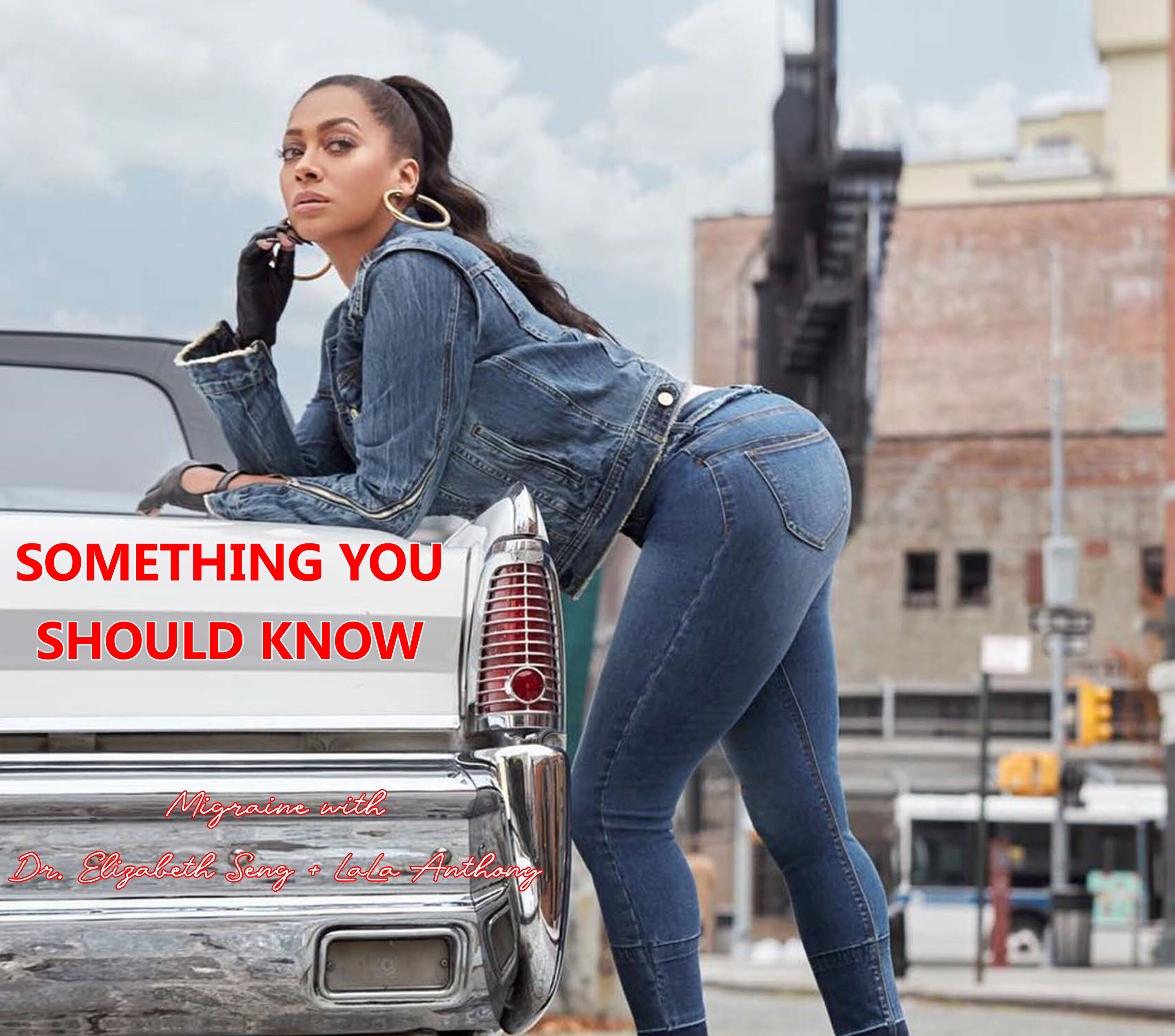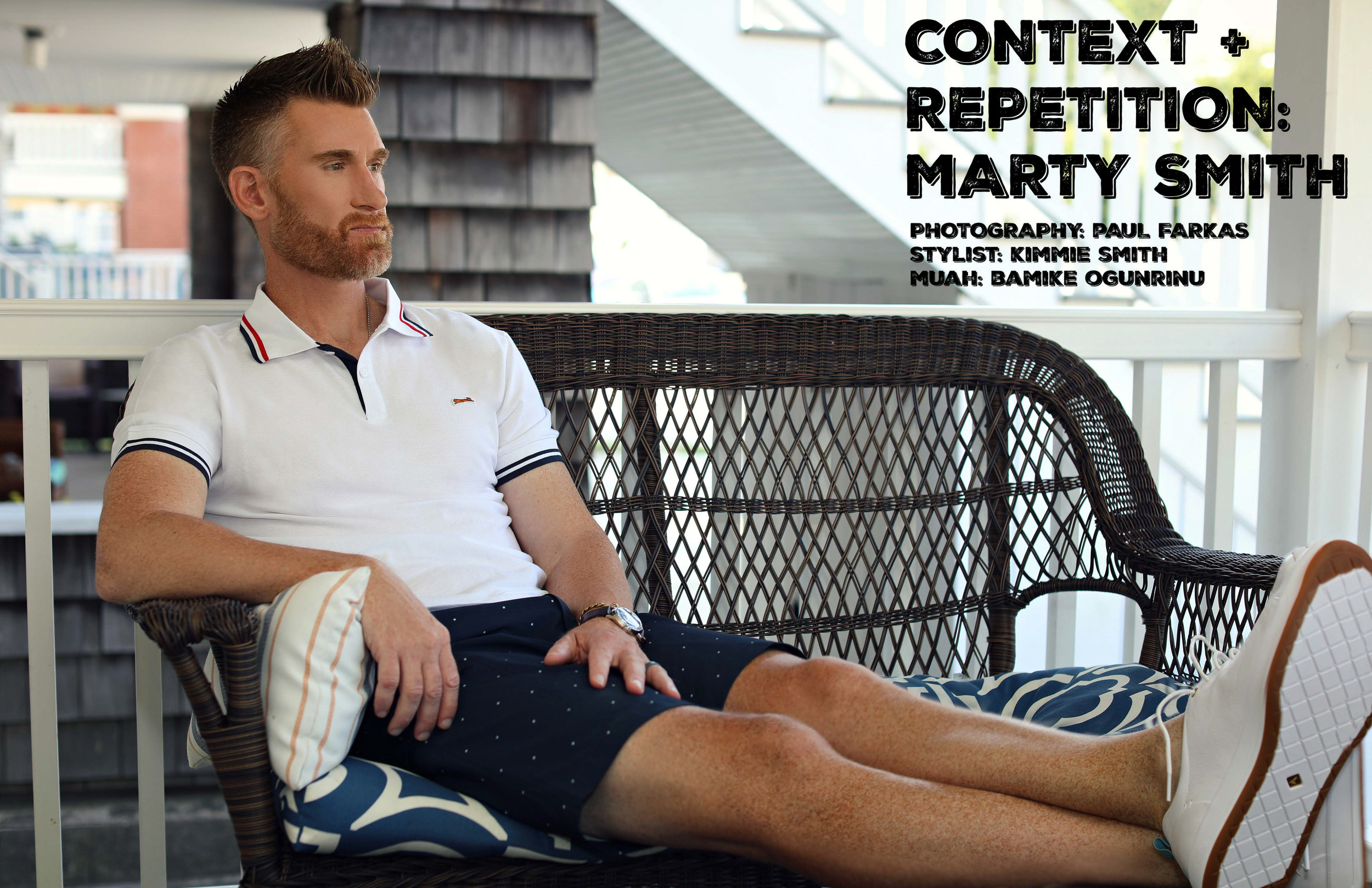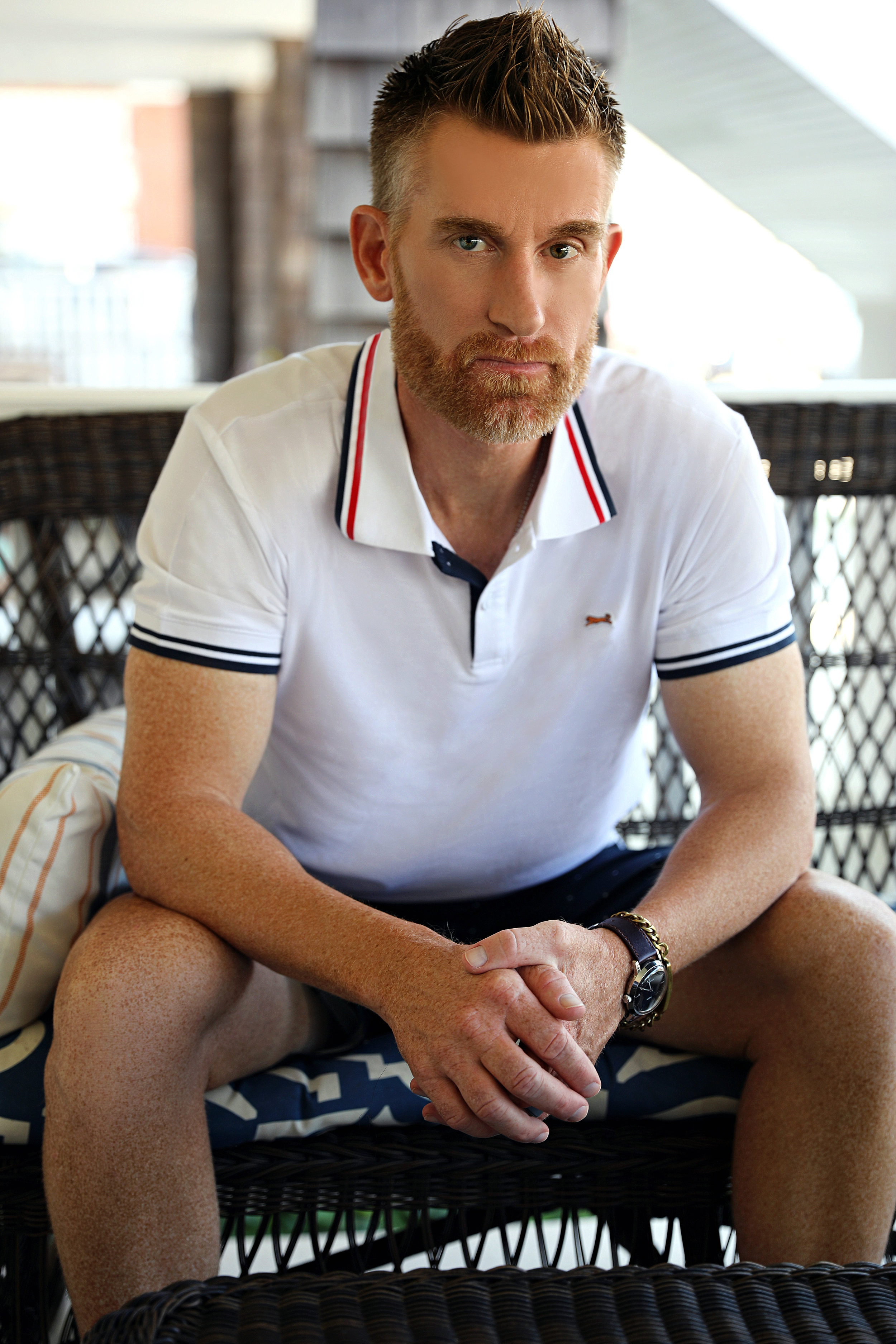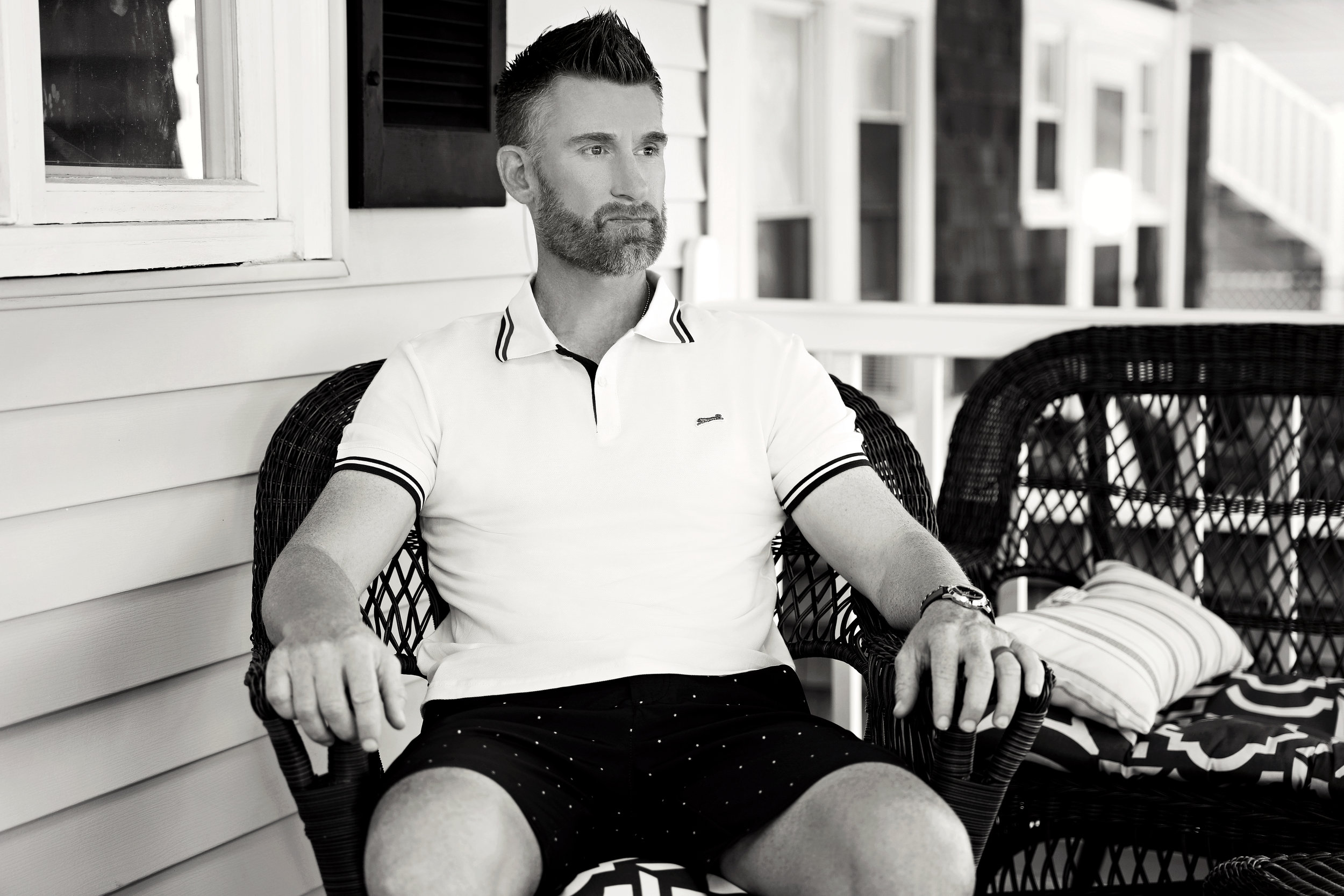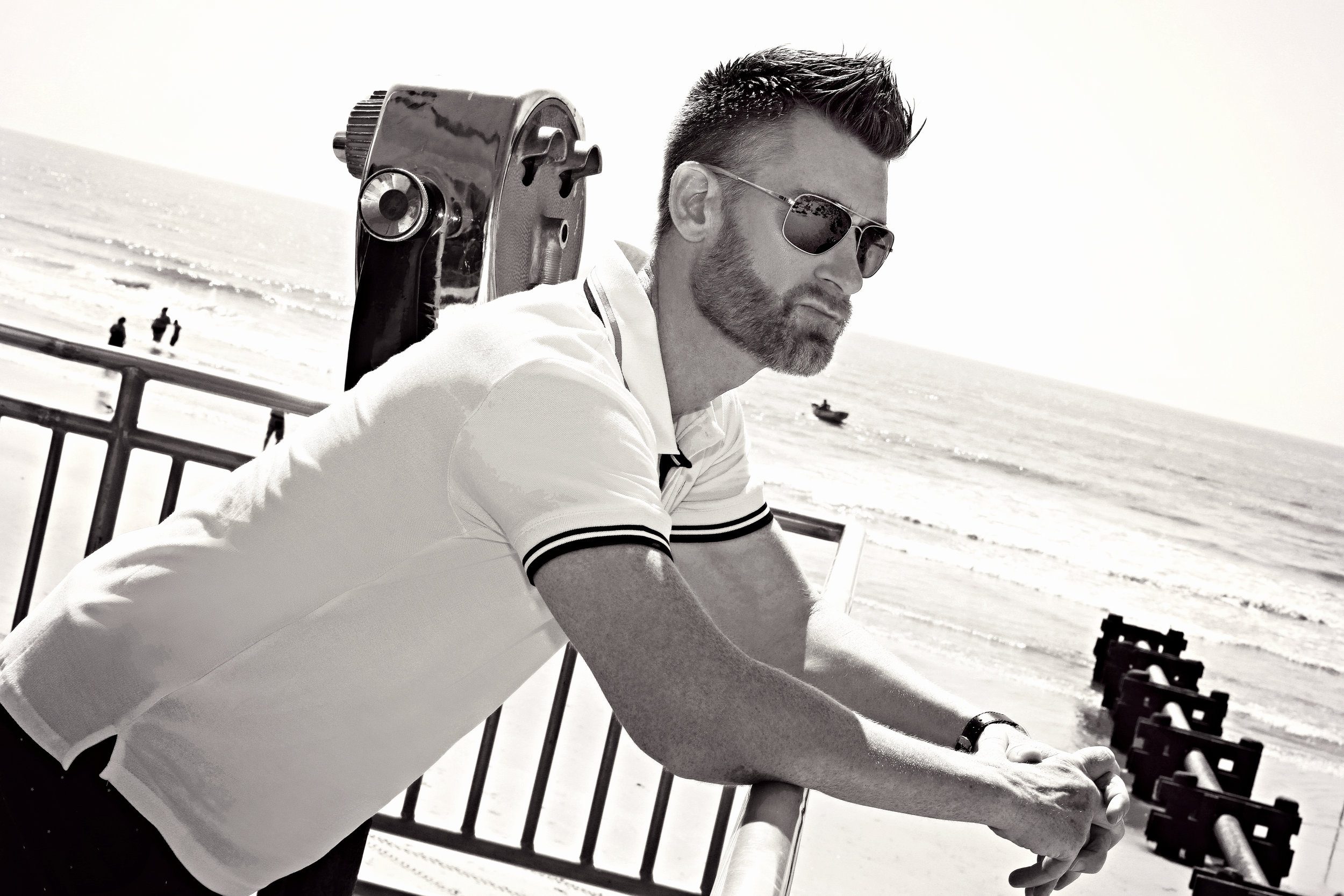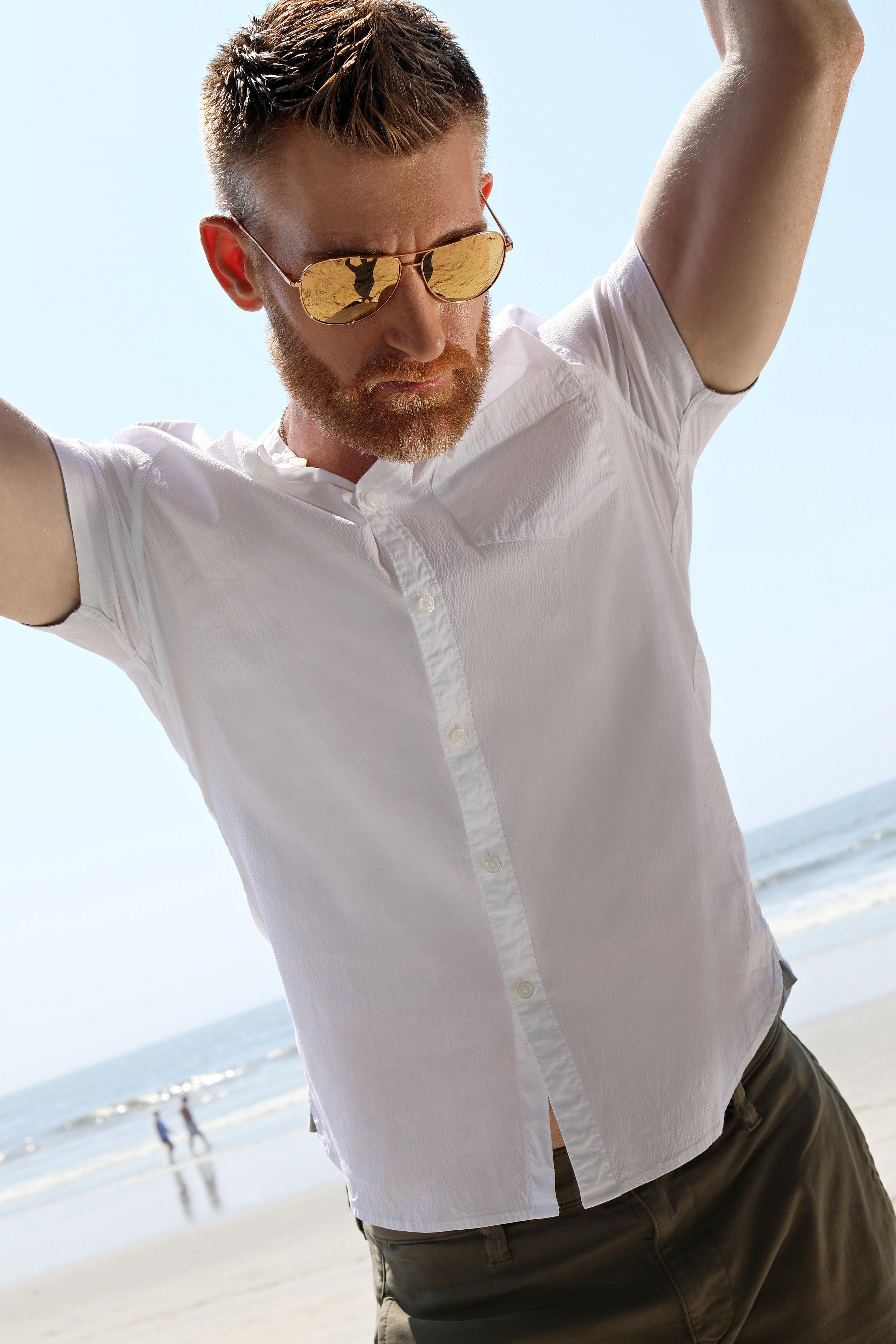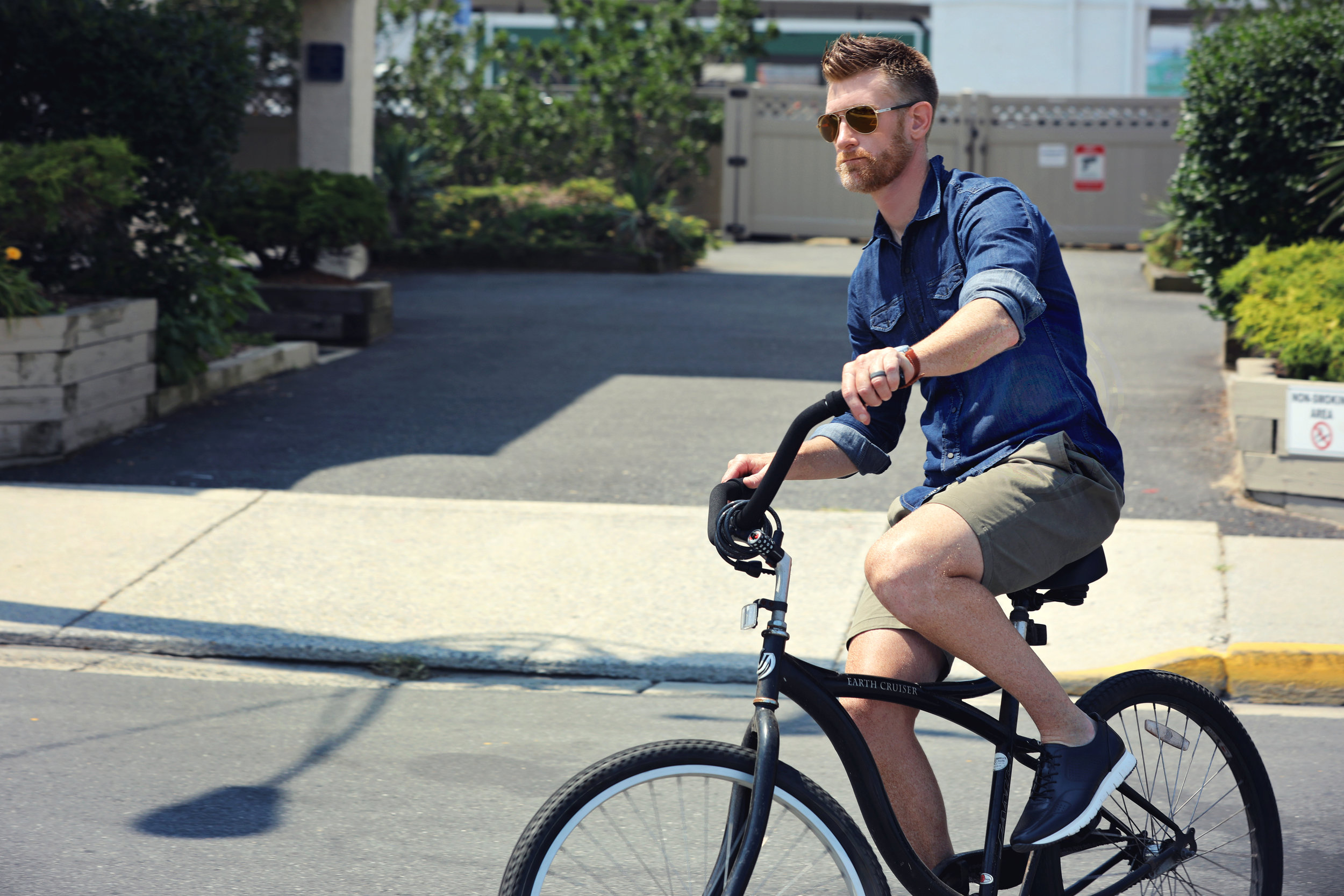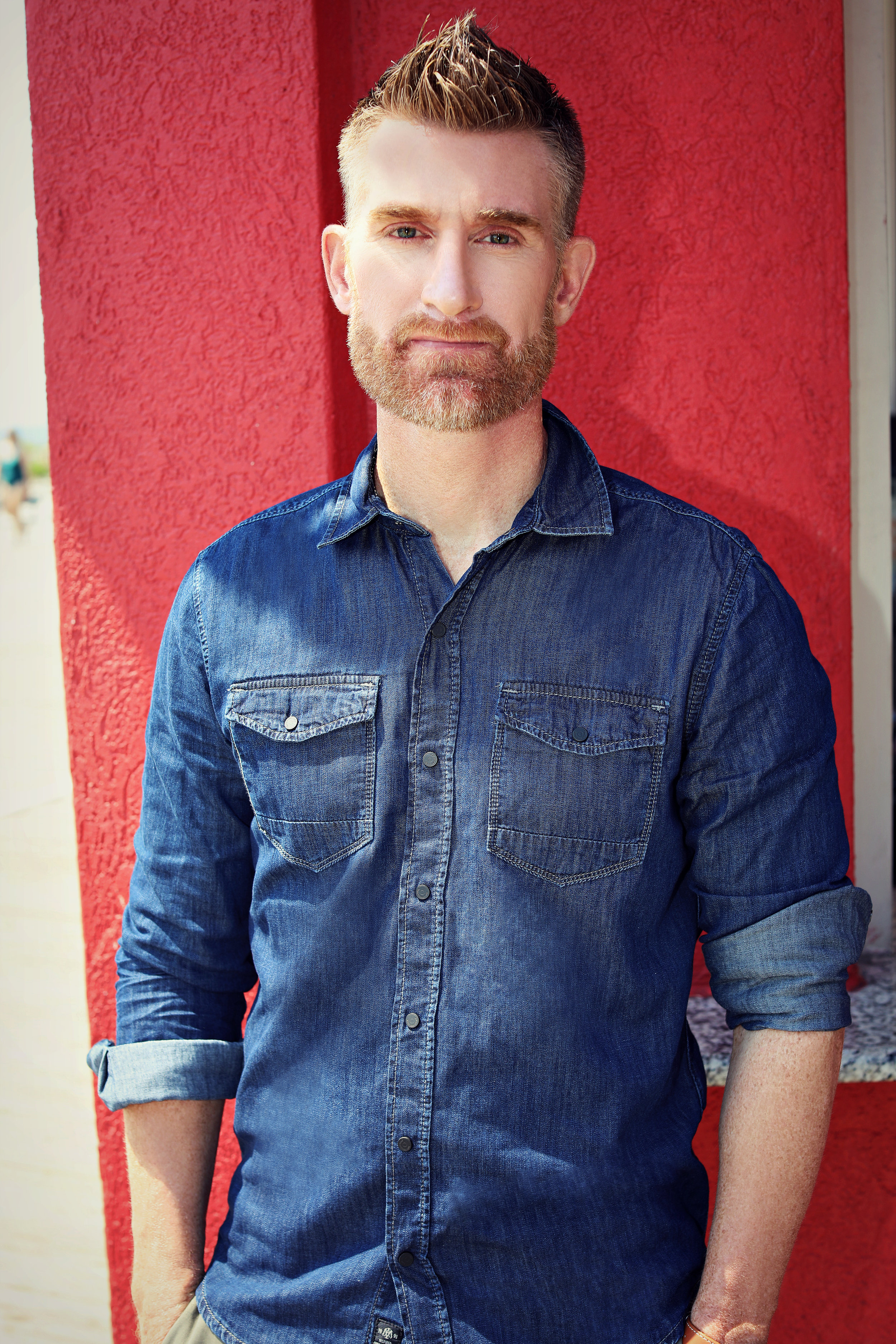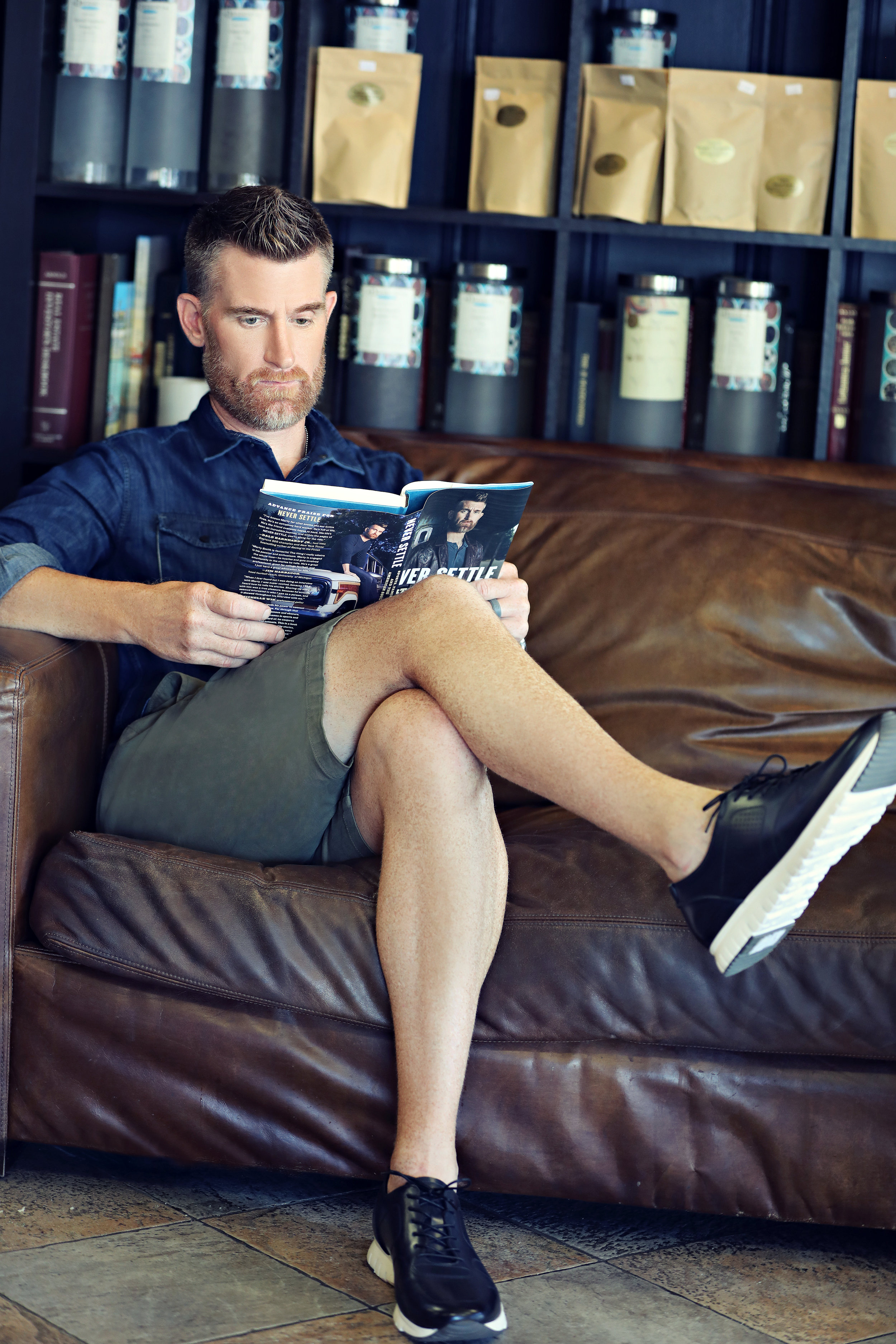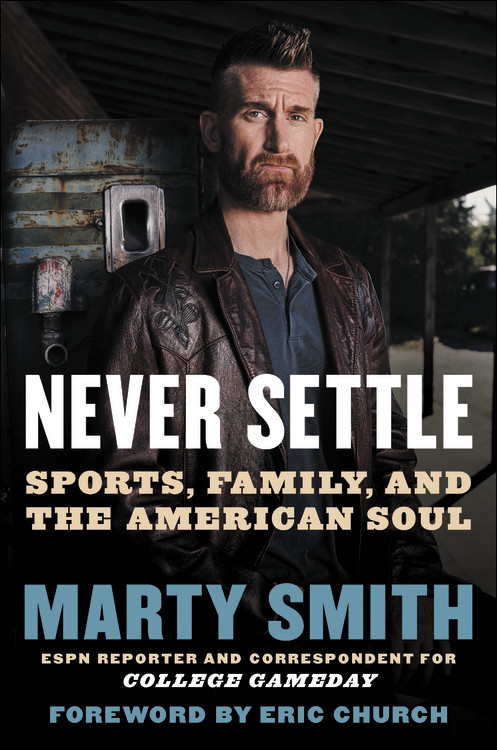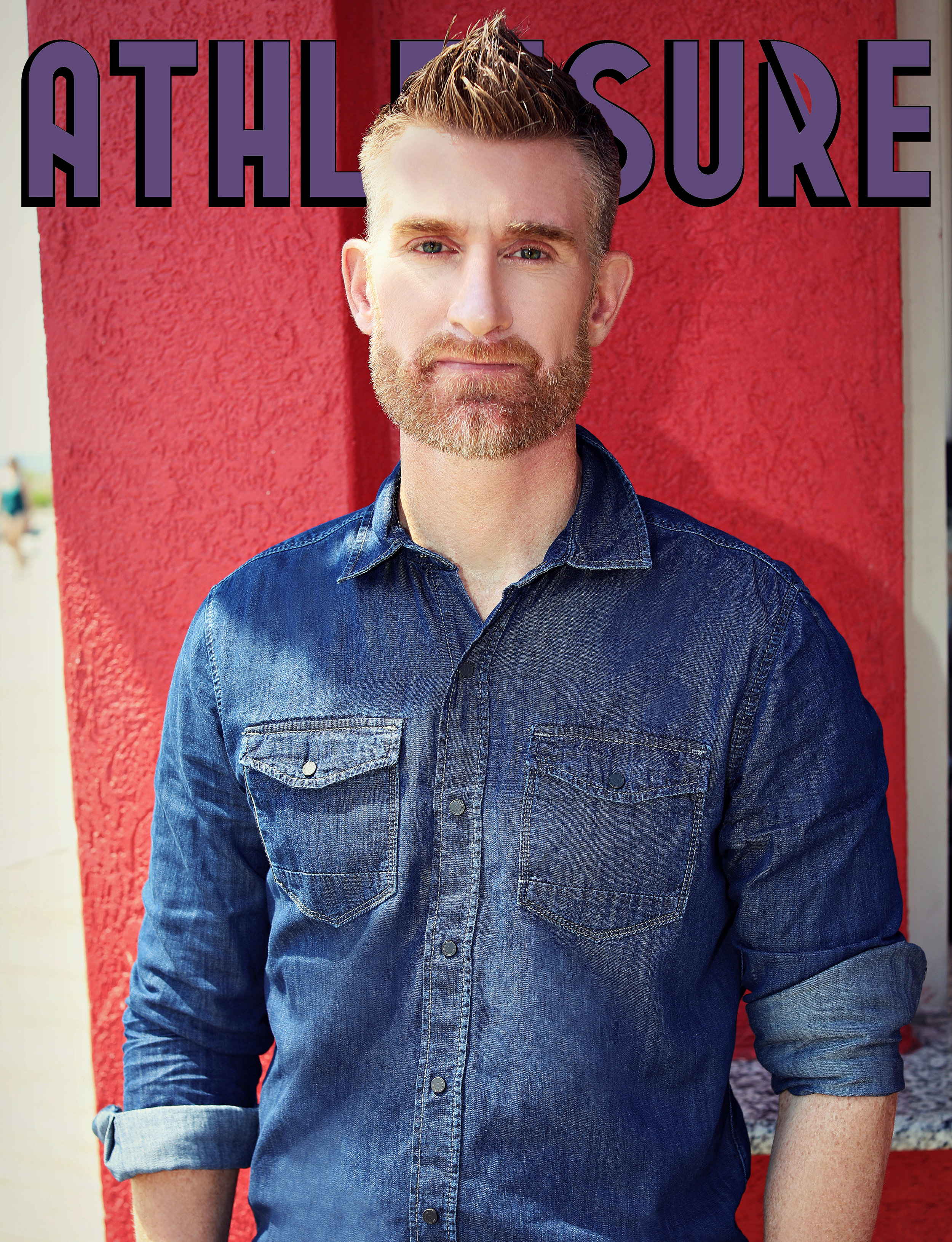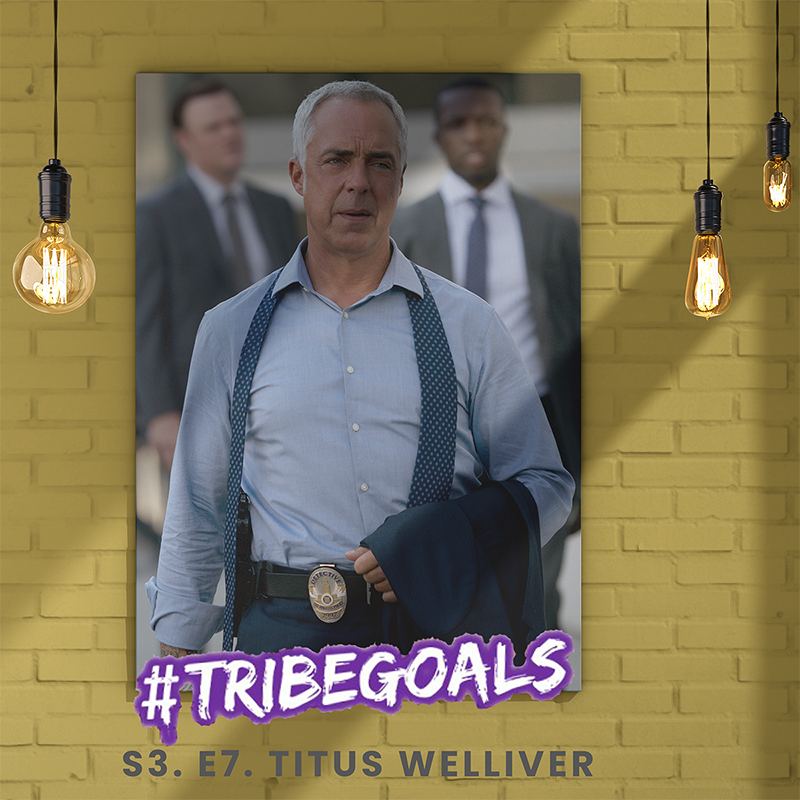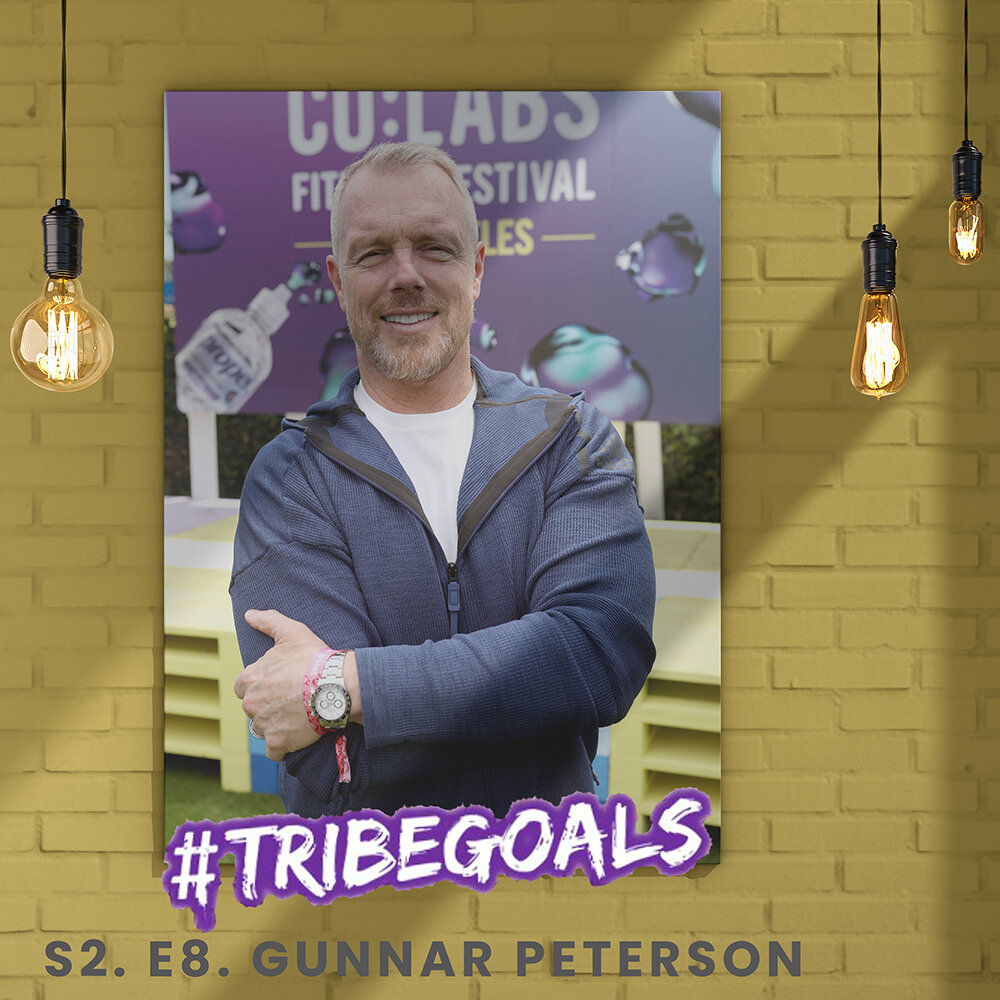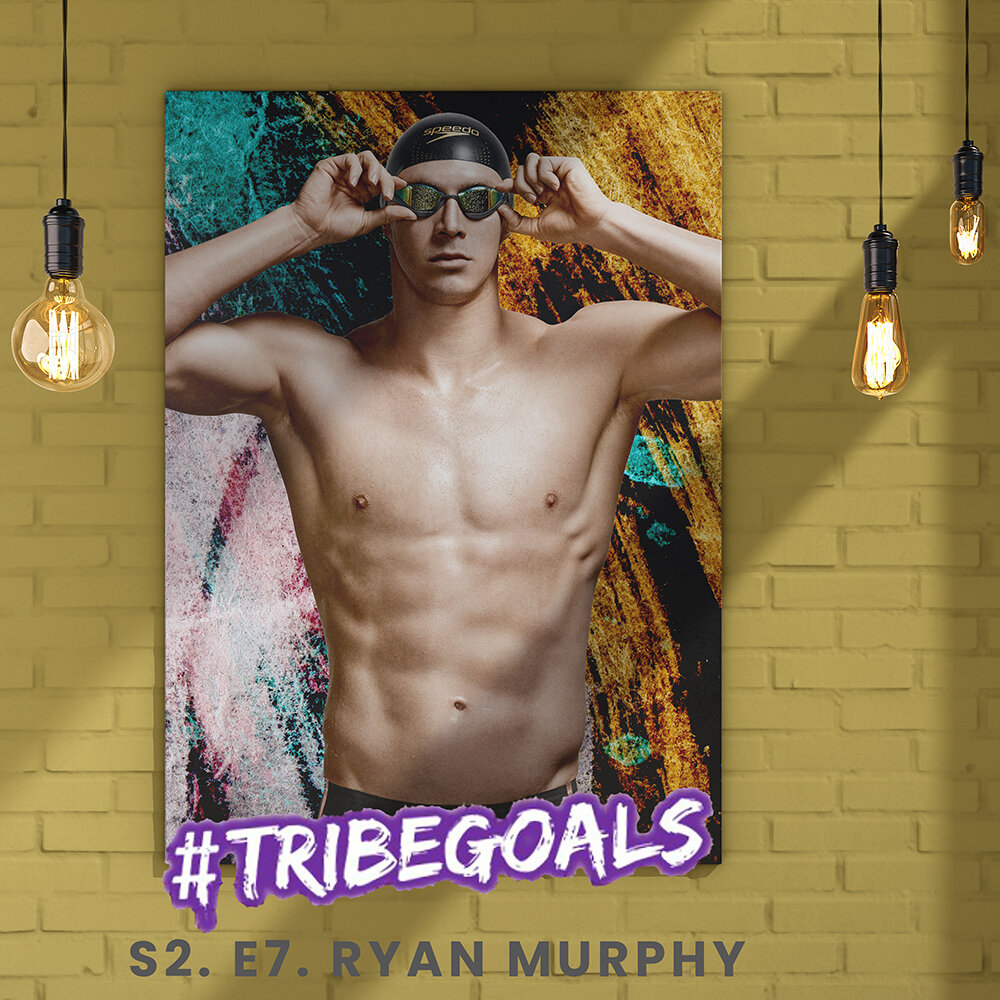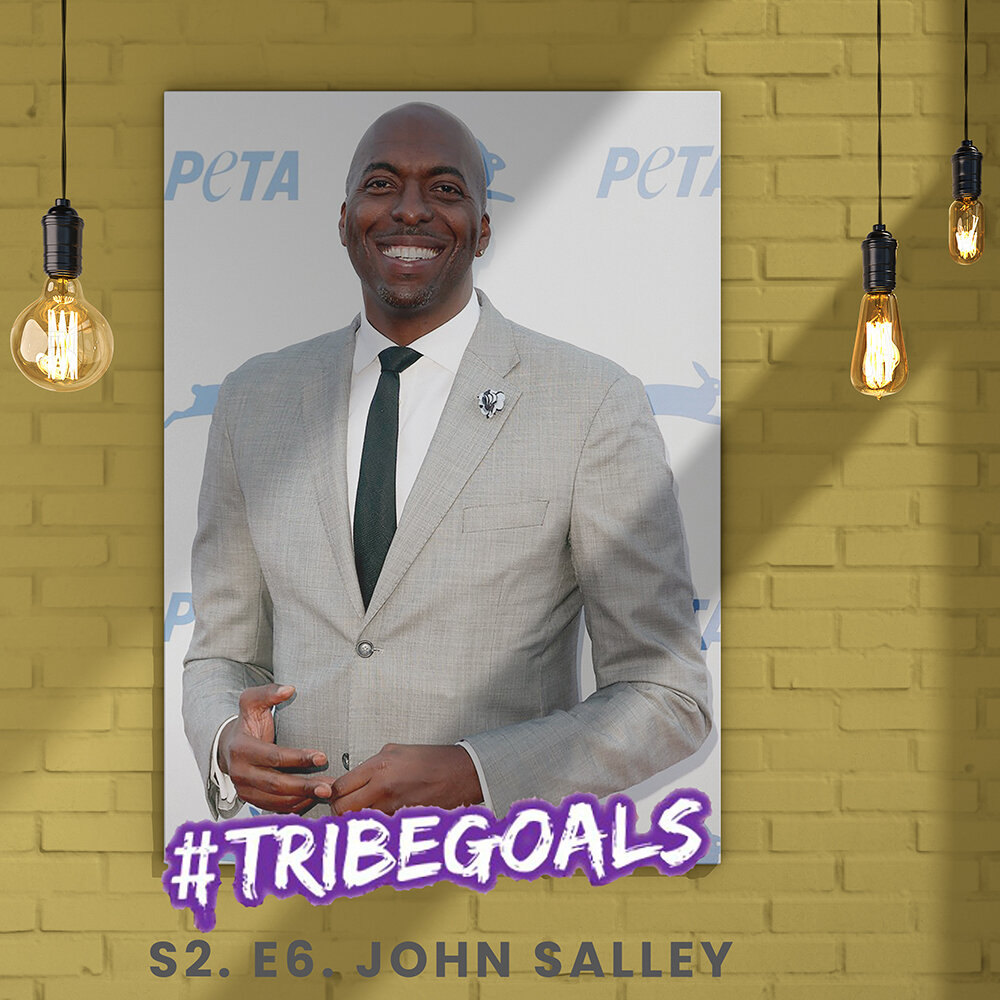My splurge? Definitely French fries. I have a major problem with French fries. They’re the best thing that man has created. And I’m not using a hyperbole statement here. French fries are amazing. All of them. You got the steak fries that are great. Curly fries – shoutout to the curly fries that were big in the ‘90s. I love sweet potato fries. Who doesn’t want a sweet potato with a nice garlic aioli? Fries are great. They’re really great. A salted potato? You can’t go wrong.
AM: We see you on air - what would you say your style is on set versus when you're out and about with friends?
SM: Style on air, I try to keep it classy, San Diego. I try and also have my unique spin to my clothing. So I love jumpsuits. It’s freezing in studio, nobody knows this because people seem so warm on air, but we are freezing in studio. Some of the guys don’t get cold the way women do. So, I try and wear pants a lot, which apparently is very unique for people who watch television and are used to seeing women wearing dresses – just check my @ mentions. So I try to change it up and wear more pants. Pocket Square Fridays are my favorite days, not just because it’s Friday but I get to wear a suit and kind of add my own personal touch with the pocket square which I also don't think you see on TV too much.
But, you know, it’s just as classy as possible. I don’t try to distract the audience by what I’m wearing versus what I’m saying. I wear a lot of black but I know I need to wear more color. And then off camera, the first thing I thought about is my camo T-shirt. There’s this one camo T-shirt that I bought at a London thrift shop when I lived there in 2008 or ’09 and I still have that shirt almost 10 years later. It’s like one of my favorite shirts. But like a camo T-shirt, some jeans and a pair of really cool kicks, that’s like a classic put-together outfit for me. A lot of black but there’s always a splash of color. There’s some pop of color that I’ll add to my outfit. But I try to keep it classic because it’s easy. When you think of the super geniuses of the world, like a Steve Jobs, he always just wore the same T-shirt and jeans. He didn’t really think too hard about what he was wearing. So I think for me that I try to get clothes where I can just take one thing, put it with another thing and they always go together no matter what two things you grab from your closet.
AM: Being able to be on ESPN's campus, we have some favorite places that allow you to truly take in sports history, where or what are your favorite spots?
SM: I think the newsroom is cool, seeing where stories break. I was sitting in the newsroom when Tom Brady’s Deflategate suspension was upheld and the newsroom went crazy. I think I heard one person scream. So to think about all the news stories that have gone through that newsroom over the years in Building 4, that to me is super cool. ESPN has with its reputation that if a big story breaks, people are putting on ESPN. Just the way that they’ll put on a CNN or an ABC or NBC, ESPN is the place to get breaking news in sports. So I think that’s really cool to walk into the newsroom sometimes and see all the different anchors and knowing that I'm part of this history. That’s a really good, cool feeling.
AM: What's your favorite story that you worked on?
SM: I guess my story with Laurie Hernandez, which is more recent. There’s a couple reasons why that’s my favorite. One, my favorite thing to do is interviewing. I love it. I enjoy being an anchor on the morning shows but I just really love sitting with someone and doing an interview and doing the work behind an interview – the research and trying to think of questions they might not have been asked. Or the way I deliver the question – whether I take a pause or I add a joke, or what’s the question that’s going to get them to be like, ‘Ah, yeah, I never thought about that,’ or to get a different answer. That’s a cool puzzle to solve as a reporter.
I had an opportunity to interview Laurie Hernandez right after her Olympic run down in Brazil and the success that she had. She was a success story out of New Jersey, she was a Latina. I felt like I could relate to. So I got to do a sit-down interview with her and her mom and her dad for a feature for One Nación, the special that we had on ESPN. It was her family story and the pride and the support that was poured into this young woman, this athlete. It really made an impact the way that you see these athletes as singular magical creatures, like superheroes. But the superhero can't be super without the support and I talked about that with her family. Her mom and dad put all their energy towards her because that was what they saw – she had a special gift. And her brother and her sister, the modesty and the lack of jealousy or anything on her family’s part to see how much she wanted to be an Olympian was inspiring. What an impressive thing.
To be an Olympian, to be a great athlete, to be these superheroes that we see in sports, that we idolize, there’s so much happening behind that one person. You can’t be that person without the support group. So for me, that was a really powerful story because that family didn’t come from money, that family’s superpower was the love that they had for Laurie and to see that firsthand was powerful for me because I felt like in some ways me becoming a SportsCenter anchor was the result of all of the love that my family had given to me.
The second part of why this is my favorite thing I’ve worked on is because I got to do a writing component that came to me during the interview and it was based on a question that I had put together from observations that I had made with Gabby Douglas and some of the racist comments and critical comments fans and media made towards Gabby when it came to her being a black female athlete and her hair and the way that she carried herself, or for not smiling. So I asked Laurie about the criticism that Gabby got and her observations there and how that impacted her as a teammate and did she also receive criticism in a similar way being the only Latina that was on that Olympic team. And she said to me that people were critical of her because she didn’t speak Spanish and they said she was a ‘fake’ Puerto Rican. And to me, that again touched something, a personal spot for me because I didn’t grow up speaking Spanish – except with my grandparents. My dad was made fun of when he moved from Puerto Rico to New York City, because he couldn’t speak English. So the first thing that my dad did was to make sure that I spoke English so that I wouldn’t be made fun of. Which is pretty sad when you think about it, right? Couldn’t we be bilingual? I would probably be way more bilingual had my dad taught me the language that he knew first, but he was made fun of as a kid.
For me, I still identify as being Latina. I still identify with Colombians and with Puerto Ricans. My family culture and traditions are something that’s really important to me and that make me feel safe. A good plate of Titi Glady’s rice and beans and pasteles is the most comforting meal I could have. So for her to be criticized for being a fake Puerto Rican when I myself am not necessarily fluent, it hurt me. So I was able to pitch this idea as Laurie being a fake Puerto Rican to The Undefeated and I had a writing component to the interview, which I thought was great. So to be able to stretch my skillset a little more and do a longer form writing piece was challenging but something that now I want to do more of because I was able to do that with the Laurie Hernandez interview.
AM: Do you do any charities/philanthropy?
SM: I donate a lot of clothes – except for the camouflage T-shirt that I have – but I donate. Also, I volunteer myself to speak to students on a regular basis, which I kind of forget that I do because it happens so frequently. Some student will say, ‘Hey, can I send you an e-mail?’ or, ‘Can I call you to ask you questions about your career?’ This probably happens now once a week where I’ll gladly take 30 minutes to an hour out of my day to talk to a student if it's going to help them with their career and give them some insight to the business. I speak to Syracuse students. I’m going to probably two or three career days in the Bronx this year and I also read to younger students recently for National Reading Day at a local school in Bristol. And then Habitat for Humanity, I volunteered with that group to help Katrina victims when I was a student at Syracuse. So I’ve continued to work with that group. I donate money to Planned Parenthood. Also, the Red Cross, during Hurricane Sandy, that was something I was part of with that group to help people that didn’t have electricity or food nearby, I brought food to those communities in Brooklyn who were hit hard by the hurricane. I’ve continued to work with the Red Cross and Habitat for Humanity since those two tragedies.





